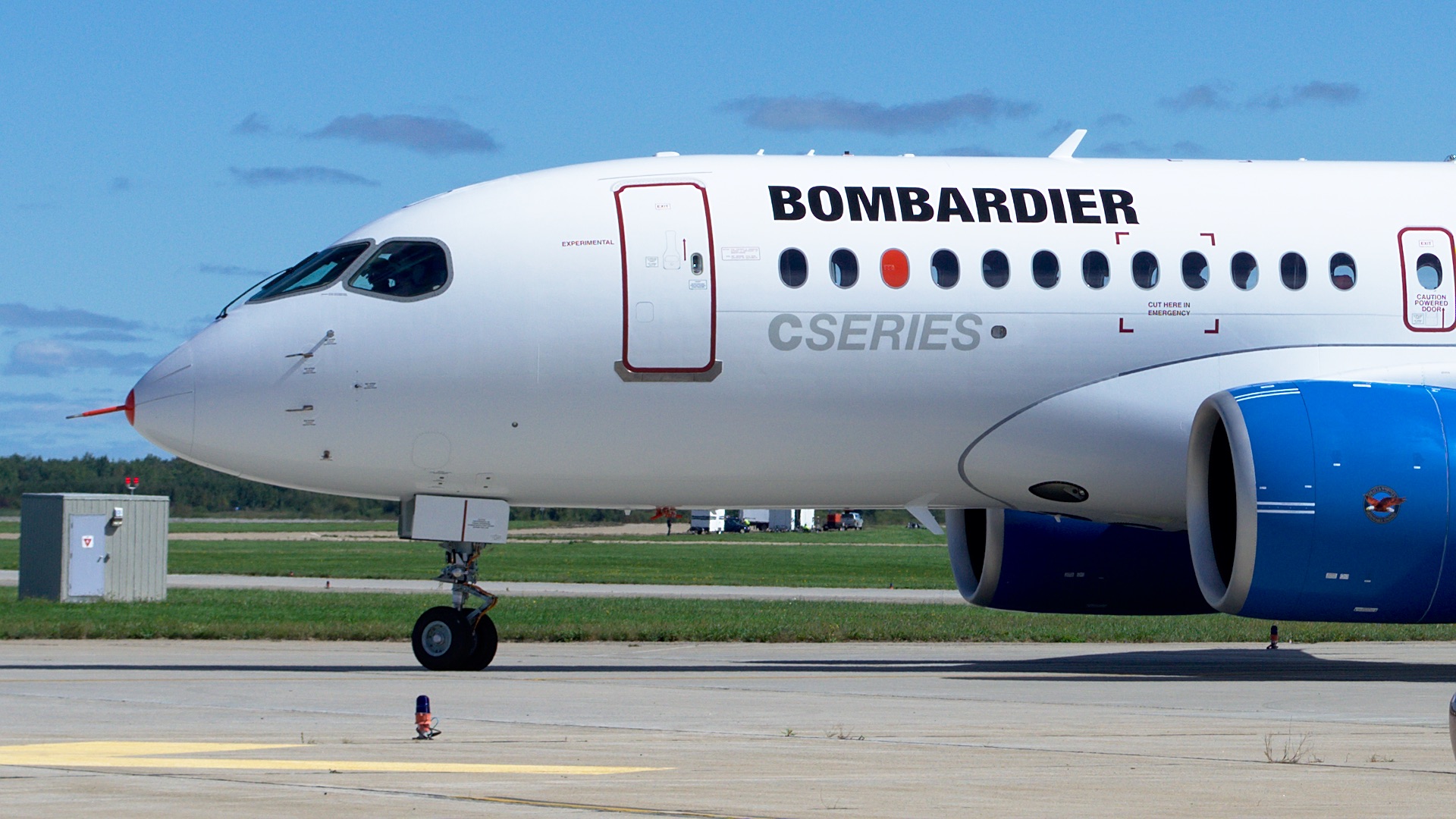Bombardier is not just a company. It is a piece of Quebec’s identity, and, in a way, Canada’s sense of itself as an industrial power. The company started out making the snowmobiles its founder invented. It sloughed off that business to a new company in 2003, and now produces a range of transportation products, including passenger aircraft, the C Series.
These medium-sized, narrow-bodied, fuel-efficient planes are an innovative Canadian product, capable of competing with similar planes produced by the Americans and Europeans. After their initial rollout less than decade ago, they attracted the attention of potential buyers in the U.S. and Europe. The planes were deemed to be not only cheaper to operate, but quieter and more comfortable than their competitors. But the C Series has had its ups and downs since then. There have been technical glitches and production delays, which forestalled certification, which, in turn, resulted in the loss of orders.
Those challenges forced Bombardier to seek financial help.
In 2015, the company offered the European aerospace giant, Airbus, a controlling interest in the C Series. Airbus politely declined. Bombardier then turned to governments: first, the Quebec government, which acquired a major equity stake in the C Series, to the tune of a billion dollars, and then, after the Liberals came to power, the federal government, which made $372 million available as a loan.
The first major company to purchase any C Series aircraft was SWISS, which enthused that the Canadian planes set new standards of “sustainability, efficiency and comfort.” The Swiss airline has had good reviews for the planes it put into service in June 2016. It has ordered a total of 30 C Series aircrafts.
A big sale and an even bigger bump in the road
Then, in April of this year, it looked like government assistance would pay off big when the giant U.S. airline Delta agreed to buy 75 of the aircraft, with the option to purchase 50 more.
But there was a big bump in the road, or really two bumps: the U.S. aircraft manufacturer Boeing, and the Trump administration.
Boeing accused Bombardier of dumping, claiming the Quebec-based company was selling the plane to Delta at below cost. The U.S. manufacturer then sought relief from Donald Trump’s commerce department, which, earlier this month, slapped a 300 per cent tariff on C Series planes.
It looked, at that point, like a major, homegrown, Canadian industry — aerospace, of which Bombardier is the biggest player — was in deep trouble. Then, on Monday evening, a saviour arrived stage left, the very same Airbus Company that had turned down Bombardier’s offer two years ago.
Now, the European giant has agreed to take a controlling stake in Bombardier’s C Series division, in a deal that will make Canada, or more precisely, Mirabel, north of Montreal, one of the European company’s five worldwide production centres. There is no cash involved in the deal, and the Quebec government retains its stake, which will now be 19 per cent.
The sweet spot of this deal is that Airbus has a major production facility right in the heart of Trump country, in Mobile, Alabama. And that is where, to a significant extent, the company plans to build the planes Delta has ordered. These planes will be American made, and will employ American workers, some of them good Republicans. They will not be subject to any tariff.
NAFTA in the background
This has all happened while the NAFTA re-negotiations are plodding on in Washington, with the U.S. throwing unacceptable demands on the table, one after the other. U.S. negotiators want to get rid of NAFTA’s neutral dispute resolution mechanism and replace it by each country’s own courts. The U.S. is unhappy that it does not always win in the current system. The Trump administration also wants the virtual end of supply management for Canadian dairy, which would devastate this country’s farming community, especially in Quebec.
The Canadian trade minister, François-Philippe Champagne, told reporters on Monday night that the Americans could pound the table as much as they want on issues such as dairy. Canada will not give in. That, the minister said, is why the people elected us.
As for Bombardier’s employees — a good part of the work they would have had on the Delta order will be shipped to Alabama, although some jobs, such as those in research and development, will stay in Canada. Over the longer term, Airbus promises that, as one of Airbus’s five production centres, Mirabel will get its share of future work for the world market.
On Monday night, the Quebec and Canadian governments, Bombardier and Airbus were all portraying this deal as a big victory. The politicians were particularly effusive. To Navdeep Bains, the federal minister of innovation, science and economic development, it is not just a story of one deal and one Canadian company. It is all about the Canadian aerospace sector.
“This is a sector that employs over 200,000 people and contributes $28 billion to our economy,” Bains said, “This impacts many suppliers across the country, well over 300 suppliers.”
Prudent heads will want to see the details before getting too worked up. But few Canadians are likely to be sorry that the deal will cause a fair bit of gnashing of teeth at Boeing headquarters in Seattle and, especially, in Trump’s world.
Tuesday should be a fun day at the NAFTA negotiations.
EDITOR’S NOTE: In our story of October 17, 2017 on the Airbus takeover of Bombardier’s C Series aircraft division we reported that Bombardier Inc. still produces snowmobiles. Bombardier Inc. sold its recreational products division, which includes snowmobiles, to a consortium of U.S. and Canadian interests, in 2003. The new entity is called Bombardier Recreational Products, but it is separate from Bombardier Inc. Rabble apologizes for the error and has corrected the story.
Photo: Yan Gouger/Wikimedia Commons
Like this article? Please chip in to keep stories like these coming.





